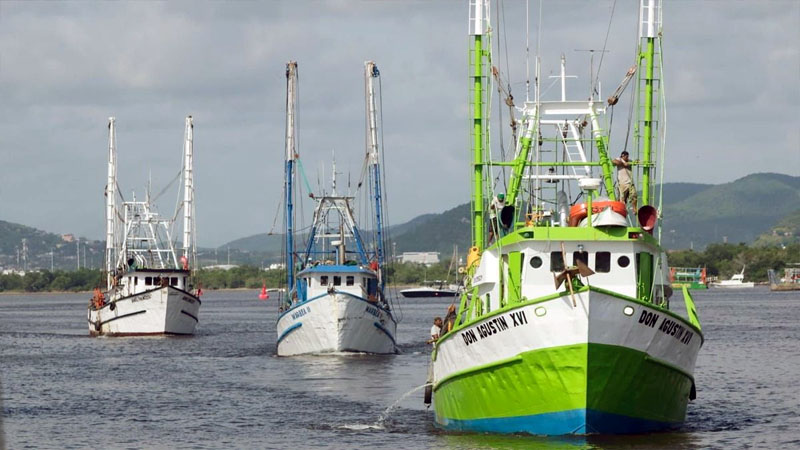Exclusive content

Mexico’s shrimp production is undergoing a dramatic downturn, as local fishermen express their frustration over increasingly poor catch results. Abundio Mejía Castro, a leading figure among the fishermen of Pueblo Nuevo, shared their disheartening experience, stating, “Despite carrying out our fishing activities for more than fifteen hours, the shrimp are not caught anywhere.”
From Abundance to Scarcity
Once able to collect up to forty kilos of shrimp in a productive outing, these fishermen now struggle to gather just one or two kilos. This drastic reduction has consequently led to an increase in shrimp prices, which have risen to one hundred and thirty pesos, up from a previous market price of around one hundred pesos. The struggle to maintain catches is becoming an unsustainable situation for many families reliant on shrimp fishing as their primary source of income.
The alarming decline in shrimp availability isn’t limited to one location; it spans multiple fisheries in the region, including Paredón, Cabeza de Toro, Mojarras, Pueblo Nuevo, San Luqueño la Costa, and Las Joyitas Uno and Dos, as well as San Andrés. Fishermen across these areas echo similar stories of dwindling yields, highlighting an industry in crisis.
Consequences of Poor Practices
Local fishermen believe that unsustainable fishing practices by some willful colleagues are at the heart of the problem. Reports suggest that certain fishermen have resorted to using chicken feed and lime bombs to maximize their catch. These methods are not only harmful but devastating; they lead to the destruction of smaller shrimp species essential for the reproductive cycle. As these practices continue unchecked, the future of shrimp reproduction hangs in the balance.
Municipal agents from regions like Paredón and San Luqueño La Costa, Lorenzo Pérez Pananá and Martín Rodríguez Ramírez, acknowledged the problem, citing that the peak periods for shrimp production now belong to the past. They remarked on the continued use of harmful fishing methods even in the face of known potential consequences. “The possible consequences were already known,” noted Mejía Castro, pointing to an industry that may have ignored critical environmental warnings in their quest for immediate gains.